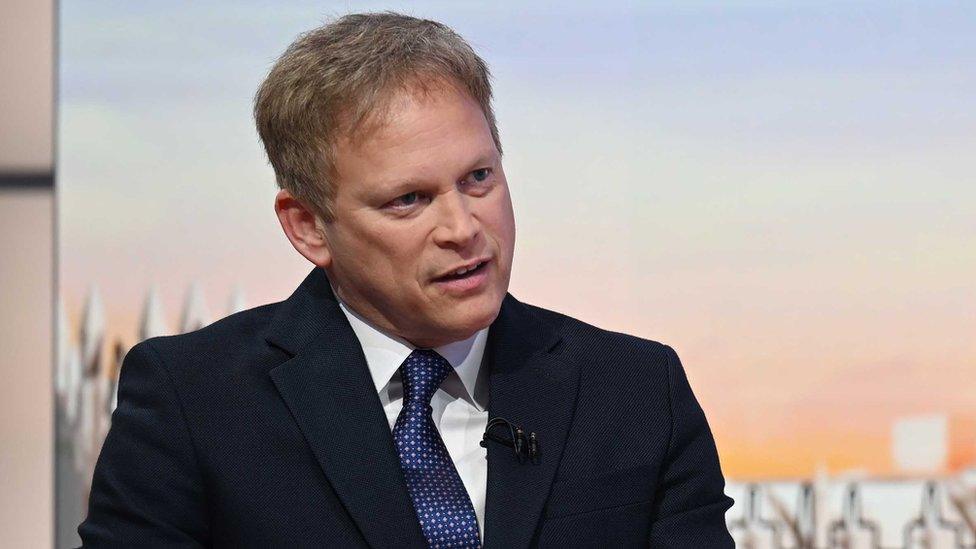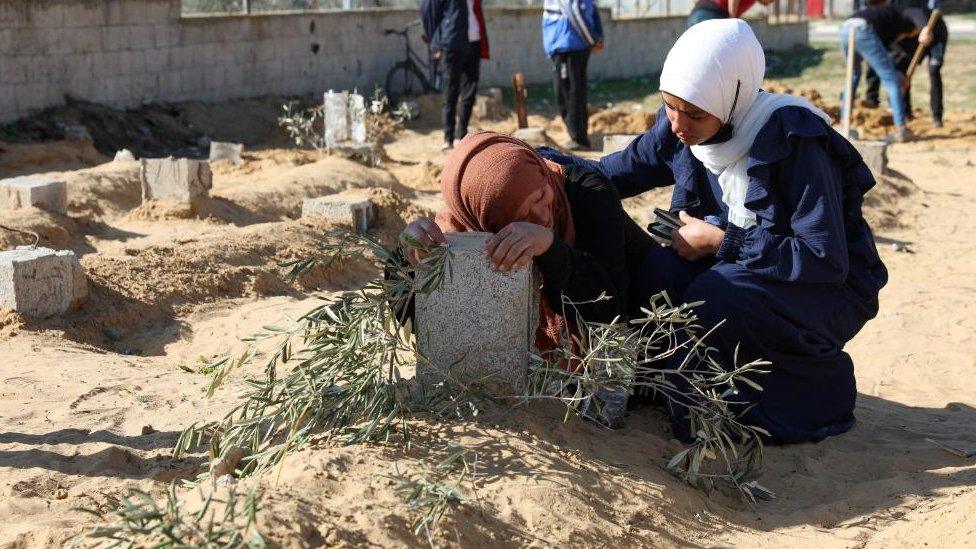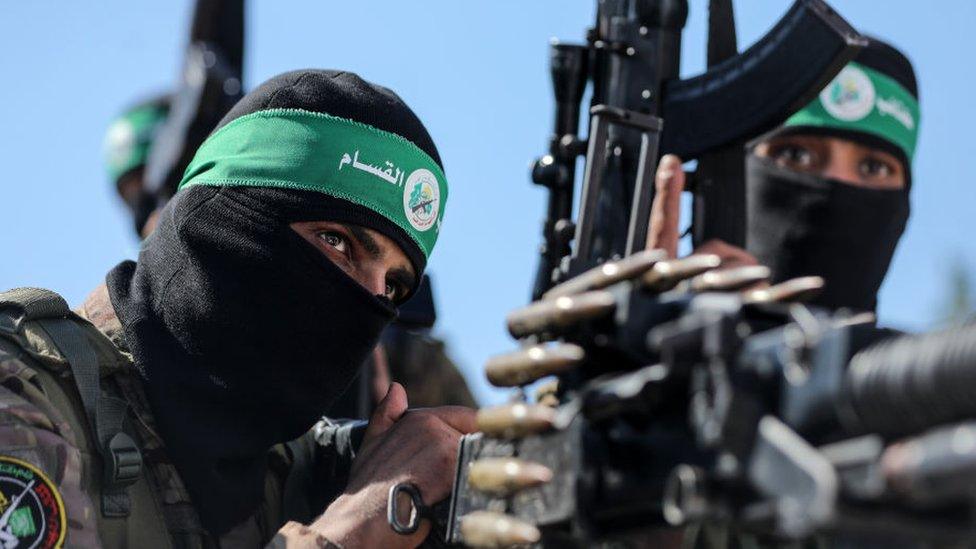Shapps 'disappointed' by Netanyahu opposition to Palestinian state
- Published

Creating two separate states is the only solution to ending the conflict between Israel and the Palestinians, the defence secretary has said.
Grant Shapps said it was "disappointing" that Israel's prime minister has rejected the idea.
Benjamin Netanyahu's position was not "a surprise", he told the BBC.
But Mr Shapps said Palestinians "deserved" a sovereign state, adding "I really don't see that there is another solution".
Following a call with US President Joe Biden on Saturday, Mr Netanyahu's office released a statement saying he had "reiterated his policy that after Hamas is destroyed Israel must retain security control over Gaza to ensure that Gaza will no longer pose a threat to Israel, a requirement that contradicts the demand for Palestinian sovereignty".
Mr Shapps said the comments were "very disappointing".
"It's not in some senses a surprise - he's spent his entire political career against a two-state solution. But the point is, which other route is there to seriously resolve this?" he told the BBC's Sunday with Laura Kuenssberg programme.
"Palestinians deserve a sovereign state, Israel deserves to have the full ability to defend itself, its own security.
"Unless you pursue a two-state solution, I really don't see that there is another solution."
He added there were a variety of views within the Israeli government "so we very much distinguish between the views of individuals and our overall support for Israel as a country".
Labour has also described Mr Netanyahu's comments as "completely unacceptable".
Shadow home secretary Yvette Cooper told Sky News: "Statehood of a people is not in the gift of its neighbour, it is the right of a people and it is the right of the Palestinian people."
Mr Netanyahu's remarks appeared to deepen a public divide with the US.
Speaking to reporters after the call between the two leaders, Mr Biden insisted a two-state solution was still possible with Mr Netanyahu in office.
"There are a number of types of two-state solutions. There's a number of countries that are members of the UN that... don't have their own militaries," he said.
Hamas killed about 1,200 people and took 240 hostages in its surprise attack on southern Israel on 7 October.
In response, Israel launched airstrikes and a ground invasion of the Gaza Strip.
According to the Hamas-run health ministry in Gaza, more than 25,000 people have been killed in the territory since the start of the conflict.
Also appearing on the programme, Scotland's First Minister Humza Yousaf, whose parents-in-law were trapped in Gaza for more than three weeks in the early stages of the war, repeated his call for an immediate ceasefire.
Asked if he thought people sometimes placed a different value on Palestinian lives, he said: "Without a shadow of a doubt. If you talk to anybody who is Palestinian, you speak to many people in the Muslim community, they feel that the Palestinian blood is very cheap."
Watch: Grant Shapps warns of 'a more dangerous world'
In his interview, Mr Shapps also said the UK needed to be prepared for "a more dangerous world".
In a speech on Monday he warned of growing risks posed by countries including China, Russia, Iran and North Korea, as well as terrorist groups.
However, asked when the government would hit its target of spending 2.5% of gross domestic product (GDP), a measure of the size of the economy, on defence, Mr Shapps said he could not give an exact date.
He told the BBC the trajectory was "already upwards", with spending "comfortably above 2%", and that the target would be met "when economic conditions allow".
It comes after former head of the British Army Gen Lord Dannatt warned the UK risked a repeat of the 1930s, when the "woeful state" of its armed forces failed to deter Hitler, unless it invested more in its military.
Writing in the Times on Friday, external, he criticised the shrinking size of the Army and called for the government to commit to spending 3% of GDP on defence.
Challenged over why the size of the Army was reducing if the threats to the UK were growing, Mr Shapps said: "It's not the number of people alone that matters, it's the lethality, it's how capable our systems are of defence."
Correction 13th February: This article wrongly reported that about 1,300 people had been killed following the 7th October attack by Hamas. This was based on counting those who later died from their injuries in addition to the figure of more than 1,200. The article has been amended to now refer to about 1,200 deaths, a figure which includes those deaths and which Israel says is not final.
Related topics
- Published21 January 2024

